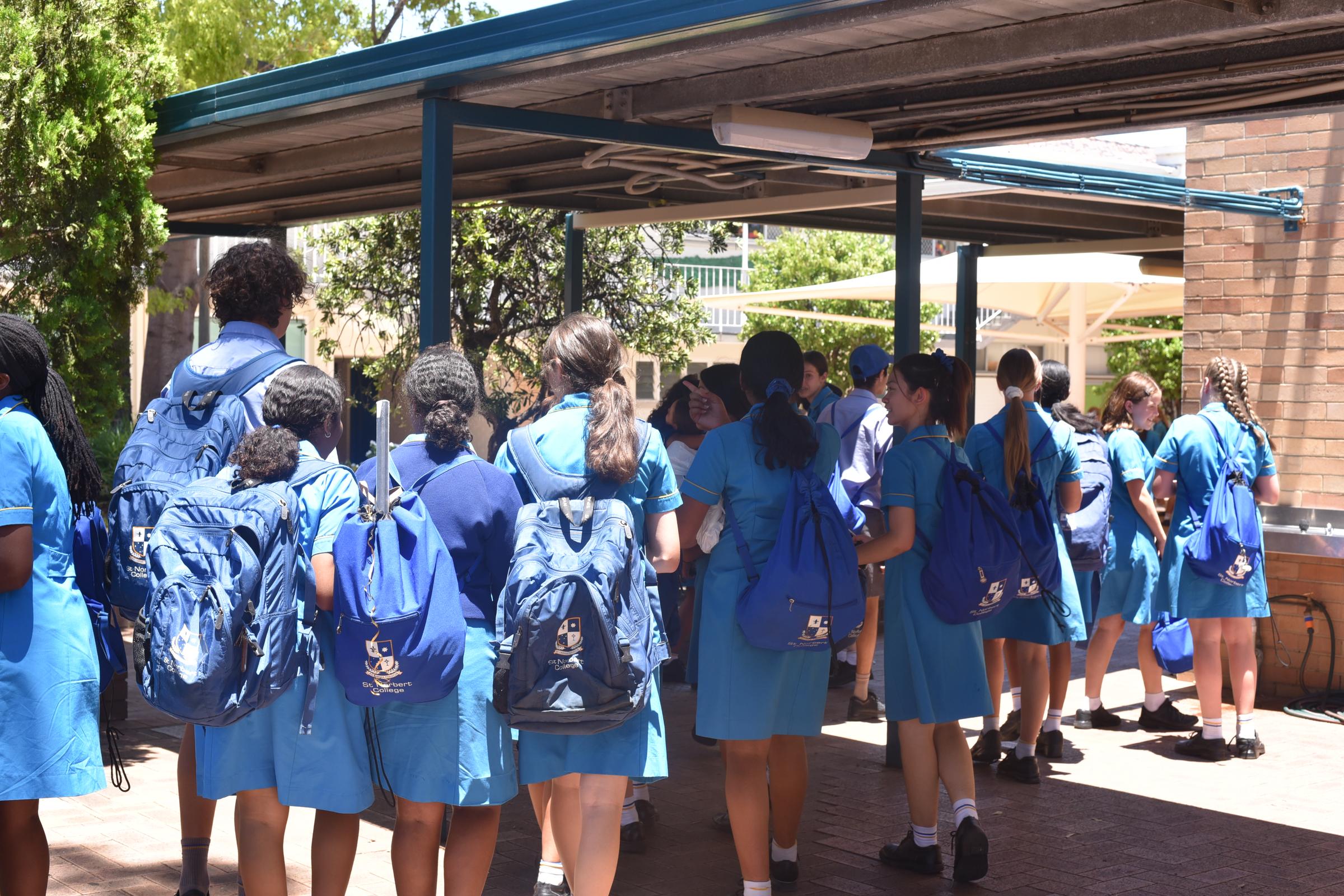Dean of Studies

School Holidays – Now What?
As the school holidays commence, many students will take the opportunity to 'switch off' from the rigour and routine of school (academic) work. And while many will feel that they have earned and deserve a rest, we also know that life continues to place demands on our time and energy. Students often return for a new school year after the holiday break and struggle to re-establish their academic habits and routines. A simple solution to ensure that students don’t struggle with the effort to ‘switch on’ again in February, is to encourage them firstly to help around the house, and secondly, to start with the hardest jobs first. And if you anticipate complaints, simply inform them that the research supports this as a way to become successful as an adult.
In his article from 2017, “Kids Who Do Chores Are More Successful Adults”*, Bill Murphy Jr. highlights the evidence from long term studies around this idea. The Harvard Grant Study is one of the longest running studies in history, (starting in 1938 and continuing through to the present day) and has identified two things that people need in order to be happy and successful: Love, and a work ethic.
Furthermore, Julie Lythcott-Haims (Author of How to Raise an Adult, and the former Dean of Freshmen at Stanford University) proposes that the earlier a child starts with helping around the house, the better. This enables the development of a ‘roll up your sleeves and pitch in’ mindset and is more likely for a person who can identify that there is often unpleasant work to be done, someone has to do it and so it might as well be me. The evidence suggests that this is what gets you ahead in the workplace, and so, if we aim to prepare students for the new school year, we may be better served by creating a routine of regular chores and housework!
And so why do the hardest task(s) first then? Some may argue that completing the easier tasks provides a feeling of confidence and competency? To some degree, this is correct however, further studies** by Dias et al. (2019) at the Kellogg School of Management at Northwestern University (Illinois, USA) suggest that avoiding hard tasks, ‘indefinitely cuts off opportunities to learn and improve one’s skills.’ If we can tackle the harder tasks by breaking them down into small milestones or achievements, we can help students to still receive the ‘achievement high’ that would typically come from easy tasks, whilst still providing the challenge and the opportunity for development or improvement. This is where the critical learning occurs that extends student capacity.
There is however a catch, because this doesn’t mean less work for parents, teachers and adults. The initial effort and energy may be difficult when getting started into the routine, or more importantly, getting their standard of work to a level that doesn’t require someone else to do a better job after them. Much like teaching and learning, developing the knowledge and skills requires practice, the guidance and mentoring of an expert and specific feedback in order to improve.
Added to this, students benefit from confronting the harder tasks (chores) first, persevering through to completion and gaining the satisfaction of the reward being in the effort. They also learn that many daily jobs and tasks are repetitive (E.g. Washing the dishes, clearing up after meals, cleaning the benches and floors) as is the case with the daily routines for school and academic work.
So, remove the guilt that the holidays are all about the reward of doing nothing, and remind them that by taking the lead to ‘push through’ when the going gets tough, they are building their work ethic for sustained success. And if they do this well, I hope and pray that your Christmas break is relaxing and restful.
*“Kids Who Do Chores Are More Successful Adults” by Bill Murphy Jr. (29/03/2017). Accessed at: https://www.inc.com/bill-murphy-jr/kids-who-do-chores-are-more-successful-adults-according-to-science.html
**”Why You Should Skip the Easy Wins and Tackle the Hard Task First” by Roberta Kwok(04/11/2019) Accessed at: https://insight.kellogg.northwestern.edu/article/easy-or-hard-tasks-first; based on research by KC, Diwas S., Bradley R. Staats, Maryam Kouchaki, and Francesca Gino. 2019. “Task Selection and Workload: A Focus on Completing Easy Tasks Hurts Performance.” Management Science.
Student Achievements – Term Four
The College presented a number of awards at the final College Assembly on Friday 13 December and the following students are to be congratulated on their contributions and achievements.
Service Learning (40+ hours)
Rylee Curtis; Hudson Montgomery; Miah Homez
Academic Excellence Program – Writing Competition Winners
Sharie Fernandez; Chanelle Min
Academic Excellence Program – Certificate of Completion
Saahir Karnam; Aldrin Saji; Shelna Sony; Amal Suresh; Isabelle Cayoun; Sharie Fernandez; Sophie Griffiths; Isabella Hulm; Jonathon Le; Kelly McKie; Chanelle Min; Judyth Nawa; Emma Pickering; Subriti Bhandari; Adam Min; Jaslina Pereira
Australian Problem-Solving Mathematical Olympiad
Logan Davies; Jia Ying Chen; Sarah Abood; Joseph Abusman; Agna Aji; Glen Brosztl; Maygen Brosztl; Ashley Mascarenhas
Shelna Sony; Deji Yin
Australian Mathematics Competition – High Distinction
Logan Davies; Ashleigh Bell
Australian Mathematics Competition – Distinction
Jia Ying Chen; Daniel Hanish; Saahir Karnam; Jeremy Pang; Katie Seroney; Joyal Shyju; Jeann Valdez
Merit Winners
Marley Kago; Shamoon Jehangiri; Blake Webb
God Bless and Merry Christmas.
Mr R Dowling (Dean of Studies)
